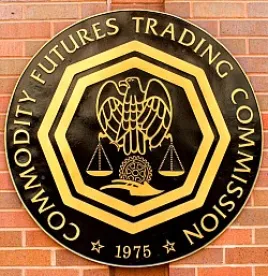On January 3, 2022, the Commodity Futures Trading Commission (the “CFTC”) entered an order charging Blockratize, Inc. (d/b/a Polymarket.com) (“Polymarket”) with offering off-exchange binary options contracts and failing to register with the CFTC as a designated contract market or swap execution facility as required under the Commodity Exchange Act (the “CEA”). (In re Blockratize, Inc. d/b/a Polymarket.com, CFTC Docket No. 22-09 (Order Jan. 3, 2022)). The CFTC ordered Polymarket to cease and desist all such unregistered market making activities and issued a $1.4 million fine (which the order noted was reduced in light of Polymarket’s “substantial cooperation” with the investigation).
Polymarket.com is an online, blockchain-enabled, event-based trading platform which allows participants to “bet” on whether a given event will occur. Polymarket describes itself as an “information markets platform that lets you trade on the world’s most highly-debated topics” where “market prices reflect what traders think are the odds of future events, turning trading activity into actionable insights that help people make better decisions.” Polymarket’s markets featured a range of binary options, including cryptocurrency/digital assets, current events, and financial conditions. Each event-based market consisted of a pair of binary options contracts related to the occurrence or non-occurrence of some event, the majority of which resolved to a definitive “yes”/“no” answer. Some of the binary options contracts traded on Polymarket included: whether the price of Ethereum would be above a certain price on a certain date, whether a particular candidate would win a political election and whether the Tokyo Olympics would take place. Polymarket defined the events traded on its site, created the contracts for each event, and resolved the trading, execution and settlement of the contracts using smart contracts hosted on a blockchain. Polymarket used an algorithmic “automated market maker” to price premiums for the options based on relative demand for each position. All transactions on Polymarket’s site were settled in an Ethereum-based “stablecoin” cryptocurrency known as $USD Coin. To buy or sell binary options contracts on the site, Polymarket market participants would create an account on Polymarket’s site and prefund a “Polymarket Wallet” with $USD Coin.
The Commodity Exchange Act makes it illegal to offer, enter into, execute, or confirm the execution of any “swap” (as defined in the CEA) unless the swaps are either traded on a designated contract market or registered swap execution facility or entered into bilaterally among eligible contract participants. Generally speaking, the CEA and CFTC regulations surrounding registration of designated contract markets and swap execution facilities are designed to prevent market abuse, ensure financial stability, and outline certain cybersecurity and system safeguards and disaster recovery protocols. The definition of “swap” is very broad and includes most financial contracts that provide for the exchange of value based on the occurrence or non-occurrence of an event or on the change in value of an underlying asset or index. The CFTC determined that each event-based market offered by Polymarket was a binary option contract and a “swap” subject to the CEA. According to the order, Polymarket was not registered as a designated contract market or a swap execution facility and Polymarket’s offering of such binary options contracts off-exchange was in violation of the CEA. As a result, Polymarket agreed to pay a $1.4 million civil penalty and wind down trading in unregistered markets that do not comply with the CEA or CFTC regulations.
The CFTC has issued a number of warnings advising customers to only trade on registered exchanges. In connection with the Polymarket order and settlement, CFTC Acting Director of Enforcement Vincent McGonagle said “all derivatives markets must operate within the bounds of the law regardless of the technology used.” The Polymarket order and settlement continues the CFTC’s increasing focus on bringing enforcement actions against participants in the crypto industry who violate the CEA.



 />i
/>i
